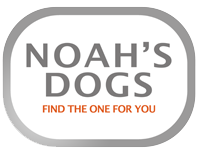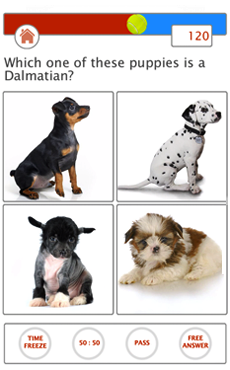Cost of dog ownership
|
One of the reasons that dogs get abandoned or given up is because they become too expense for the owner to manage. The cost of a dog goes far beyond the initial cost of a puppy – it’s a long term financial commitment, which tends to escalate as the dog gets older. There are many different costs you will have to pay out throughout the course of your dog’s lifetime.
Before committing to owning a dog, make sure you can budget for it for the next decade or more.
Do you have a steady, stable income? It’s best if you can afford your dog comfortably; if it’s going to be a financial stretch to provide him with food, shelter and essential care then it will be even more of a struggle if your income decreases.
Can you foresee any changes in your circumstances? If you’re planning on having a family, moving house or changing career you need to think carefully about how you will cope with expense of owning a dog. There are also the changes you can’t predict – would you still be able to afford your dog if he needed extensive veterinary care, you lost your job or if you had to stop work for a while?
It’s also worth bearing in mind that dogs often need a lot more care as they get older. Frequent vet visits and medication are common requirements for elderly dogs and they are difficult to find new, loving homes for if you can’t cope with these escalating costs. Will you still be in a position where you can manage the expense of an older dog, years in the future?
The Standard Costs of Dog Ownership
Food – Food accounts for around a third of the cost of owning a dog and is of course a daily essential. You may be tempted to choose lower quality food for your dog in order to cut down on costs but good quality, nutritious dog food will keep your dog healthier and happier. Make sure you don’t overfeed him though – not only will you be paying for more dog food than you really need, but if your dog is overweight he may experience costly health issues in the future.
Toys – Dogs are active, fun loving animals who love to play, chase and chew. Toys will keep your dog happy, content and better behaved, so are a must buy for loving owners.
Training – It’s vital to train your new dog and training classes are the best way to do this, especially for inexperienced owners. Not only will you and your dog learn obedience training but it’s also an opportunity to socialise your pup with other owners and puppies, helping him become a well-mannered and balanced dog. Training classes aren’t just for puppies though; if training slips then they may need to return as adult dogs in order to learn better manners and habits.
Grooming – While some breeds don’t need to visit a professional groomer, a great many do need to go for a clip or trim. Some breeds need to go to the groomers as often as every six weeks. Even if your dog won’t need to get his coat clipped, you’ll still need to account for specialised dog shampoos, combs and brushes so that you can keep his coat tangle free and clean.
Insurance – Pet insurance is a good safety net which will come in very handy should your dog ever need a lot of veterinary care. However, it’s very important to do your research so that you end up with a good policy, otherwise you could end up having to pay out heavy fees on top of the cost of your pet insurance plan.
Dog Walking and Sitting – If you enjoy travelling and going away on holiday, or your work hours are unreliable then there’s a very good chance you’ll need to budget for dog walkers, sitters and boarders so that your dog will be well taken care of when you aren’t around.
Vet costs – You may be surprised by just how often you’ll be taking your dog to the vets. From regular check-ups and vaccinations, to deworming and flea treatments, there are a number of regular payments to make to your vet. You might also want to get your dog a pet passport. As well as the usual costs, budget for the unexpected vet bills which may arise due to accidents, injuries or illness.
Essentials – Your dog needs many of the same essentials that we do – shelter and somewhere to sleep and eat. Beds, bowls, leashes and collars all add up – you’ll have to pay a lot of money to stock up on the essentials when you first get your dog, but they’ll need replacing throughout his lifetime as well.
How Costs Vary by Breed
There’s no way to say exactly how much dogs cost their owners over the course of their lives. Aside from unexpected costs such as vet bills, different breeds have different requirements which directly affect how much money needs to be spent on them. The cost of a dog is not a one size fits all situation.
Larger breeds such as Newfoundlands, Mastiffs and St. Bernards need a lot more food than smaller breeds, so it’s important to make room for this in your budget. However, large dog breeds tend to have shorter lifespans of around eight years, which could make the overall cost of owning a large dog smaller than that of a smaller breed.
Small breeds such as toys and terriers need a lot less food, so the daily cost of owning one is low. However, they can live to approximately 14 years so the total cost of ownership could in fact be greater than that of larger breeds.
Certain breeds require regular grooming. The poodle for example needs to be clipped up to every six weeks; his coat can be expensive to maintain. Other breeds, like the Border Terrier, need nothing more than an occasional brush and will never have to visit a professional groomer. If you’d rather not have to deal with the regular costs of professional grooming, then you may want to consider a breed with a low maintenance coat.
Getting insurance helps you manage costs like vet bills, but some breeds are particularly expensive to insure. This may be due to a susceptibility to inherited, genetic diseases but is most often down to a history of aggression within the breed, such as with the Akita.
Before you get a dog, carefully consider how it will impact your finances. By thinking about how much you are willing and able to spend on your dog, you will be able to find a breed of dog which suits your needs and financial situation.
Summary Checklist: When considering the costs of a dog there are a number of factors to consider: Your income Future changes in income Escalating costs as the dog ages Everyday expenses and unexpected costs How cost varies by breed
|
- There are no comments yet









